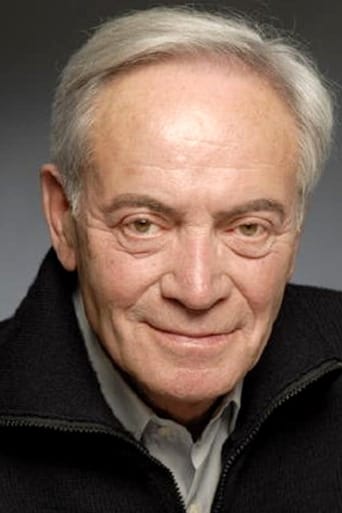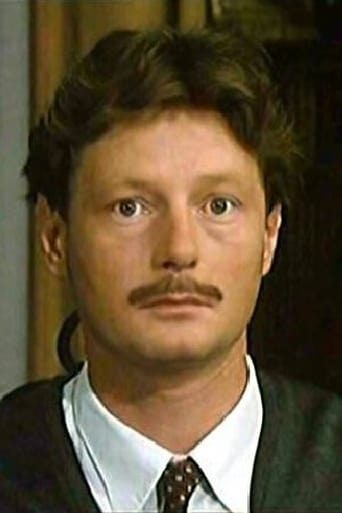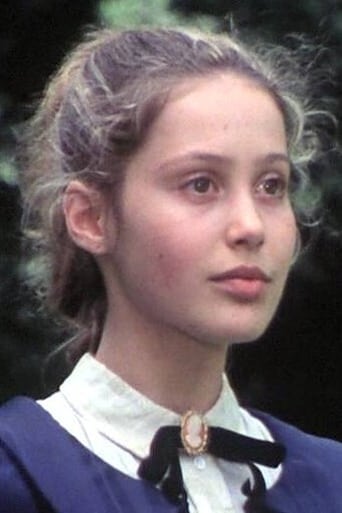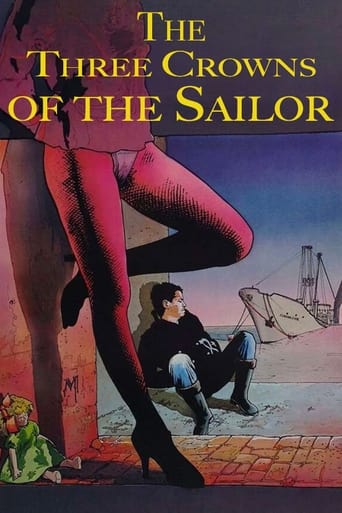
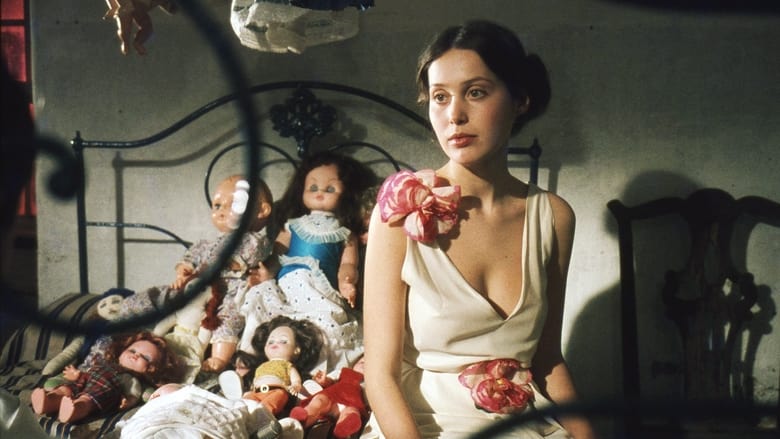
Three Crowns of the Sailor (1983)
Shortly after murdering his professor, a young man encounters a sailor who offers him a position on his ship in exchange for 3 Danish crowns and his attention as he recounts his life story.
Watch Trailer
Cast
Reviews
Overrated
an ambitious but ultimately ineffective debut endeavor.
It’s fine. It's literally the definition of a fine movie. You’ve seen it before, you know every beat and outcome before the characters even do. Only question is how much escapism you’re looking for.
what a terribly boring film. I'm sorry but this is absolutely not deserving of best picture and will be forgotten quickly. Entertaining and engaging cinema? No. Nothing performances with flat faces and mistaking silence for subtlety.
Hi. Glad I got your attention. Let's just say I'm borrowing some of Ruiz's style by making a bold statement and backing it up with, well, nothing. If you dig analogies, you will understand that rocking your world, as Fight Club purports to do, is hardly a one-sided affair. When worlds are rocked, it is fair that denizens of worlds fight back to restore order. Thus, me.I am going to disregard the various film-making tropes which Ruiz employs, as I consider them gimmicky filler to thin story. Thin? Truly, variations on a theme. Don't get me wrong, I love such things in music, art, and film; but this film is tedious. Almost two hours here to say what might be said in 30 minutes, "classed up" with trappings. Let me tell you, Orson Welles dances all over this mess. Welles had a sense of humor, apparent in nearly everything he did, and this humor gave proper depth to such classics as The Trial and Citizen Kane, among the many. Greenaway employed art to back his vision. Ruiz is merely tempestuous.But I don't want to be dismissive. Ruiz is prolific, passionate, and determined. I can't fault that. However, the surrealism he purports to bring, a la Bunuel or Jodorowsky, is of a protégé, not a master.The best philosophy from Three Crowns Of The Sailor is that money has meaning. For me, this at least deposes any anti-capitalist meanings the Left may derive for drivel. The means of exchange is cash, and the gift is (what?) immortality? I would be better mood for this film is the exchange resulted in something concrete, but the defeatist attitude which the film perpetually resonates seems to whiff of nihilism, and if that is your cup of tea, oh well.I do not mind the ambiguity of outcomes, but narrative is narrative, and intentional confusion for its own sake doesn't please me. You may ask me, how then do you enjoy Jodorowsky? With effort! Now, surprise! I give the film 7/10 for causing me to write a review at all!
So my ongoing project is to seek out films that point towards a true perception, a way of seeing things as they are and why. If the image has power as a fragment of the consciousness it informs and is informed by, then in entering a film we literally see what another has seen or dreamed, imprinted with what he means by seeing whatever it is he sees.If this kind of film is rarely encountered, it's precisely because so many filmmakers see things in order to mean something else. Rarely do they mean what they see.Some of my most cherished filmmakers dismantle with clarity of vision the cluttered notions, ideas, meanings, we associate with those images so that only the image remains, along with what echoes it has stirred in us. This is akin to meditation for me, a process of emptying out.Another group of films I am drawn to use the opposite means, but look for the same. These assail our established notions (that things make sense a certain way) by fabricating other notions to confound or challenge that sense, by precisely cluttering their apparent order with various synthetic modes, symmetries or layered patterns. The idea here is that by losing ourselves in these stratagems, we awake to the activity of the mind that obscures the true picture. We look at things as through a kaleidoscope, not simply to enjoy the phantasmagoria, but so that we may become aware of that kaleidoscope that fractures the seeing.This one belongs in this company, next to Greenaway and Welles.So what we have here is another cunning web of stories within others, narrators within their selves projected into these stories. A sailor is recounting a story of sailing the High Seas to a young student, like in something Herman Melville might have written 150 years ago, or R.L. Stevenson.We stop at various ports in this voyage, where fragments of life are recounted as vignettes. Various commentaries can be found in these, each one an elaborate ploy that informs others in turn.In Singapore for example, the sailor meets with a local kid and the French proconsul. The proconsul translates what the kid says, but is he really? He says the kid is actually a wise old man, and that he must be kept from eating so that he won't grow old. In starving the kid, he posits that he's doing him a favour. The colonial commentary should be obvious, which Ruiz probably felt like he had inherited by working in France.In Dakar he's met with a black doctor, who asks money and tells him how the present moment is impregnated with all the other moments, past or yet to come. Elsewhere he is saved by a kid who claims that he is free to roam the territory of his parents yet, in not having discovered any borders to it, is strangely prisoner of that freedom. The kid points to books of Stevenson claiming he already knows the stories, and wants to live in the world, not the page.These fragments together comprise a kind of memoir, a mistress, wife, a kid. But again, how much of it true outside of the words? How much of it only a story the sailor picked up elsewhere and improvised some of his past upon it? We literally flow through these, like Welles would have the imagery; fluid motion, solid forms. Soaking up half-remembered atmospheres as thrown up by the imaginative mind. The mind which endlessly remembers, yearns, dreams, loathes, loves, talks with itself.It's a rather beautiful construct overall; a ship as vessel of the imagination sailing on inscrutable seas, where all the sailors aboard are dead (like memories, to be conveniently arranged) except one, with the ability to dream ship and voyage. Who comes back with stories from that voyage, stories that involve parts of himself real or imagined.This may had been an astonishing work if what reality anchored the imaginative flight could resonate inside the fantasy. On the level of reality there is the sailor narrating to the student; they are in a kind of ballroom and around them dance various couples. I wonder, will this mean to you what it does to me?
"Les Trois couronnes du matelot"/Three Crowns of the Sailor (1983) is the third of the three early Raoul Ruiz films on an indispensable Blaq Out set along with "L'Hypothèse du tableau volé" and "La Vocation suspendue" (see my remarks on the other two). This I liked almost as much as "Hypothesis" and wish I had had the time to watch it again; it gets perhaps a wee bit long, but on the whole it is a wonderfully delirious pastiche of various themes and visual tropes from Orson Welles (most specifically "Lady from Shanghai", "Mr. Arkadin" and towards the end, "The Trial"), film noir generally, Sternberg's "Macao" and other 40s-50s Hollywood-in-the-exotic-ports-of-call type pictures -- all filtered through Ruiz's wonderfully playful postmodern/magical realist sense of story. Like the two earlier features it is incredibly dense, self-serious on its face but self-mocking and amused when one delves deeper. Most of the film consists of a sailor -- in many respects as naive and reckless as Welles' Michael O'Hara -- telling his life story -- or stories, of adventures at sea, femmes fatale, murders, and money, always lots and lots of money -- to a young man in a spectacular restaurant/ballroom in Antwerp (I think). It's really mind-boggling, but in a very different way from the two earlier films in the set, and in many ways it's a good film to set you up for Manoel dans l'île des merveilles. The photography, in particular the black and white segments (those set in "present-day", in Antwerp) is quite striking and is the work of the great French cinematography Sacha Vierny, who had worked with Buñuel and Resnais among others, and went on to work with Greenaway. After seeing this early series of films, one can see that that -- like so many of the odd occurrences in so many early Ruiz films -- was no coincidence. DVD rental
This is just about perfect for what it is, and what it is elevates it to something that can change you.Life is a matter of stories and also about reflection on self. So all true stories are in some way at least partly about storytelling. The only question is whether the fold has power. Such can have extreme power when things flow more fluidly than you allow your mind to work and does so cinematically. This has that power.The basic structure is of a vessel of stories, where stories live as parked fragments of life. The "ship" needs a live human to be the viewer of the stories, but because this is reflective, the viewer/listener participates in these fragments as well. But they are not disconnected fragments but story elements that self-assemble in unexpected ways. Some run parallel. Some recount others. Some elaborate, or contain or spawn others. Some negate, affirm, kill. Others baffle, countering those that explain. This isn't Borges, whose map is revealed. This is a universe of silkworms weaving an incomprehensible wad of threads that intersect, merge, disappear. Sacha Vierny is the cinematographer, and oh what a poet the man is! Its all stories, and constantly spoken, but the images are what matters the spine of the thing is cinematic, leveraging that special ability to hypnotize that only a master of image can throw.I had not known of this film before now. For some reason, Ruiz's work isn't appreciated and circulated as it should be. Its strange. I rate this as the second of his films and the second allowed for this year that I allow on my must see list. Its delicate. Sparse, yet rich, like a nude drunken stroll through a stormy spice bazaar in a land whose language you do not speak.When you see it, realize that it is dangerous stuff, that if you are either incredibly weak or very strong, it will capture you and you will sail on the ship of lost narrative.Forever.Ted's Evaluation -- 4 of 3: Every cineliterate person should experience this.
